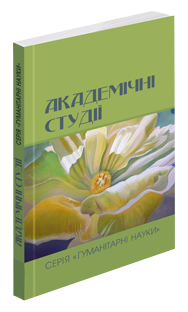Abstract
The article examines the peculiarities of the transformation of communicative norms in youth Internet discourse in the context of the linguistic and cultural approach. The author analyses the changes in the speech practices of young people that arise under the influence of digital technologies, social networks and modern socio-political processes. The lexical and stylistic characteristics of digital communication are examined, including the widespread use of neologisms, occasionalisms, slang, as well as multimodal means of expression – emojis, memes and gifs. Particular attention is paid to the phenomenon of informalisation of speech, which manifests itself in the blurring of traditional norms of spelling, punctuation, stylistic boundaries and etiquette rules of communication. The article focuses on the socio-cultural significance of youth linguistic innovations that serve as emotional expression, self-identification and digital identity construction. It is found that linguistic transformations in youth Internet discourse are not just a consequence of the technical features of digital platforms, but also a reflection of profound changes in the cultural and value orientations of society. The results obtained are of theoretical importance for understanding the current processes of language transformation and practical value for developing recommendations for teaching Ukrainian in the digital age. Digital communication among young people is not just a modified version of traditional communication, but a separate, full-fledged communicative environment with its own norms, rules, and functions, which requires further comprehensive linguistic and cultural study.
References
Гірняк О. Г. Гендерні стереотипи у медійному інтернет-дискурсі. Львівський філологічний часопис. 2020. № 8. С. 40–45. DOI https://doi.org/10.32447/2663-340X-2020-8.6
Горошко О. І. Гендерні аспекти інтернет-комунікацій : автореф. дис. ... доктора соціол. наук : 22.00.04 – спеціальні та галузеві соціології. Харків, 2010. 37 с.
Гудзь Н. О. Інтернет-дискурс – невід’ємна складова сучасної комунікації. Вісник Житомирського державного університету імені Івана Франка. 2013. № 70. С. 228–232.
Жалко Т. Й. Технології застосування цифрового кейсу при вивченні дисциплін мовно-літературної освітньої галузі. Академічні студії. Серія «Педагогіка». 2024. Вип. 1. C. 57–62. DOI https://doi.org/10.52726/as.pedagogy/2024.1.9
Заборовська С. В. Особливості віртуального дискурсу в просторі Інтернет (на прикладі інтернет-щоденників) : автореф. дис. ... канд. філол. наук : 10.02.02. Харків, 2006. 19 с.
Зражевська Н., Литвиненко О. Комунікативні трансформації як наслідок розвитку сучасних цифрових інтернет-технологій. Інтегровані комунікації. 2023. № 1 (15). С. 36–41. DOI https://doi.org/10.28925/2524-2644.2023.155
Карпенко М. Ю. Лінгвістичні особливості інтернет-дискурсу. Мова. 2016. № 26. С. 5–11.
Климович С. М., Алмашова М. О. Оказіональні утворення в українськомовному блогопросторі: теоретичний аспект. Науковий вісник Херсонського державного університету. 2023. № 1. С. 155–161. DOI https://doi.org/10.32999/ksu2663-3426/2023-1-22
Клярська Г. Ю., Тарасенко О. Д. Особливості мови інтернет-спілкування (на прикладі україномовних користувачів). Науковий вісник Міжнародного гуманітарного університету. Серія : Філологія. 2018. № 32. Т. 3. С. 49–52.
Лукашенко Н. Г. Іспаномовний Інтернет-дискурс: комунікативно-прагматичний та лінгвостилістичний аспекти (на матеріалі форумів з проблематики родинних стосунків): автореф. дис. … канд. філол. наук : спец. 10.02.05 – романські мови. Київ, 2006. 22 с.
Середницька А. Я. Зміна ставлення до мовних норм у віртуальній комунікації та її причини. Наукові записки. 2024. № 3 (210). С. 274–279. DOI: https://doi.org/10.32782/2522-4077-2024-210-39
Скиба І. П. Трансформація мови комунікації під впливом процесів інформатизації суспільства. Вісник НАУ. Серія : Філософія. Культурологія. 2023. № 2 (38). С. 94–100.

This work is licensed under a Creative Commons Attribution 4.0 International License.

